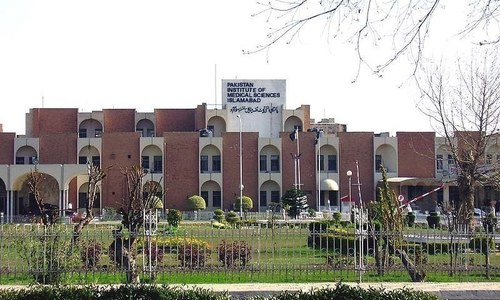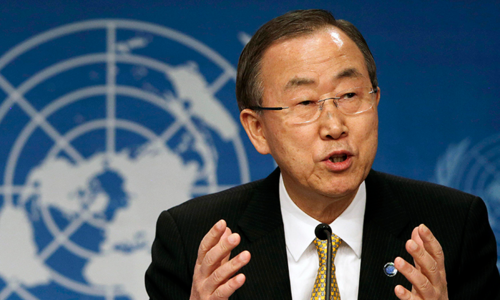LAHORE: Nazir Masih, 58, an HIV/AIDS patient, became an outcast when he socially disclosed he was suffering from the deadly disease.
But he did not give up. Masih launched an organisation to help AIDS patients and spread awareness about the disease in the country.
“I was forced to drop out of school at the age of 11 as a breadwinner for my family. I tried working as a motor mechanic but earnings were low against long hours. I left the job and tried my luck working in Abu Dhabi. Things worked out and I went to the place where I worked as a domestic worker for a rich Arab family and earned enough money to send home,” says Nazir Masih, founder and CEO of New Life Aids Control Society.
Narrating his tale, he says: “A few years later, I returned to Lahore for marriage. I was earning well, but I could not afford to bring my wife to Abu Dhabi yet as I was living with two other men and I did not have appropriate accommodation for her.”
The absence of his wife in Abu Dhabi made it hard for Nazir to resist the temptation of visiting a brothel. “I am certain that I contracted the virus from one of the sex workers at the brothels I used to visit,” he says.
Nazir came to learn about the disease in 1990 when he visited Pakistan’s Embassy in Abu Dhabi for passport renewal and a visa extension which required a mandatory medical test for visa applicants.
“I took the medical test as a formality and was diagnosed as HIV positive, thus leading to my deportation to Pakistan.”
Shattered and heartbroken, Nazir was unable to cope with the harsh reality.
“My friends and neighbours started avoiding me.
“Our family would be treated with discrimination at all social gatherings; we were never invited to parties and social gathering. My entire family was being punished for my mistakes.”
He says he felt like an outcast, which ultimately led to three failed suicide attempts on his part.
“There were no medications or guidelines available for HIV carriers in Pakistan and my life was doomed in every sense,” Nazir recalls.
“Better late than never. With the help of a Christian charity organisation in Lahore, I was able to gather enough courage to fight HIV. I did that by initiating a platform called ‘New Life AIDS Control Society’ to raise awareness regarding medication and treatment for HIV carriers in Pakistan since 1999.
“Over the years, through efforts at various fronts, I managed to introduce registered medicines for HIV in Pakistan in 2003.”
It also involved bringing 1,400 other HIV carriers including men, women and children on a platform for treatment, he says.
“I did this by going public with my HIV status and convincing their families get rid of fear of being rejected by society.
“I urged them to come forth and register themselves as HIV carriers for medication, hence making a breakthrough against the social stigma surrounding HIV carriers.”
According to USAID estimates, there are 94,000 individuals in Pakistan living with HIV, out of which 26,000 are females aged 15 and above, while 2,100 are children.
There have been 2,800 deaths due to HIV in Pakistan.
According to Pakistan Global AIDS Response Progress Report, Pakistan’s HIV epidemic started in the 1980s when cases surfaced mostly amongst migrant workers employed abroad.
This stage of low prevalence continued for the next two decades when suddenly a surveillance study in Karachi exposed an epidemic amongst intravenous drug users in Karachi (26 per cent) and Larkana (9.7pc).
Pakistan is following an HIV epidemic trend having moved from low prevalence, high risk, to a more concentrated epidemic in the early 2000s.
Pakistan’s epidemic is primarily concentrated among two key population groups: people who are involved in intravenous drug use with a national prevalence of 27.2pc followed by transgender sex workers standing at 5.2pc, and male sex workers at 1.6pc.
Fortunately, prevalence in female sex workers is still low and accounts for 0.6pc of the cases.
According to Pakistan Global AIDS Response Progress Report, the epidemic trend is moving from low prevalence to high risk due to the steady increase in the number of persons injecting drugs regularly for non-therapeutic purposes.
Similarly, bisexual behaviour was reported by approximately 39.5% of the cases. Consistent condom use was very low at only 13% with paying partners, and even lower at 11% in the case of non-paying partners. Transgender persons are considered at a higher risk of acquiring HIV in Pakistan.
Pakistan Global Aids Response Progress report further states that female sex workers reported an average of three clients a day.
Condom use with clients was generally low as only 33.2% reported they always used a condom with their clients and 20.6% reported consistent condom use with non-paying partners. Hence, HIV prevalence in female sex workers is still low at 0.6% as opposed to other concentrated high risk groups.
In antenatal clinics, the report claims the disease has not yet spread amongst the general population – there are little to no cases of HIV and rare STDs in the population under study. Two other studies amongst men from the general population showed similar outcomes.
Though statistics show that HIV is a grave problem, the ban placed on condom advertisements in 2014 depicts how reluctant the government of Pakistan is to address this serious issue.
Another HIV carrier from Rahim Yar Khan, who wishes to remain anonymous, told News Lens that he was diagnosed with HIV at a medical camp in Lahore in 2010.
The 29-year-old man said he became addicted to drugs in his teens. He used syringes to inject himself with drugs, which he would also share with fellow addicts.
After being diagnosed with HIV, his experiences were not very different from other HIV carriers in Pakistan.
He was reluctant to come forward and fight the disease, but after years of counseling, he not only registered as an HIV carrier for medical treatment but also quit drugs.
Talking to News Lens Pakistan, Faisal Majeed, Project Director, Provincial Aids Control Program, Punjab, said the government of Pakistan is working hard to prevent HIV transmission with measures such as safe blood transfusions, establishment of surveillance and dealing with HIV-related stigma.
The government had registered 14,705 HIV carriers across Pakistan till December 2015 but fighting cultural ignominy is still a serious challenge.
This article originally appeared on NewsLens Pakistan and has been reproduced with permission.
















































